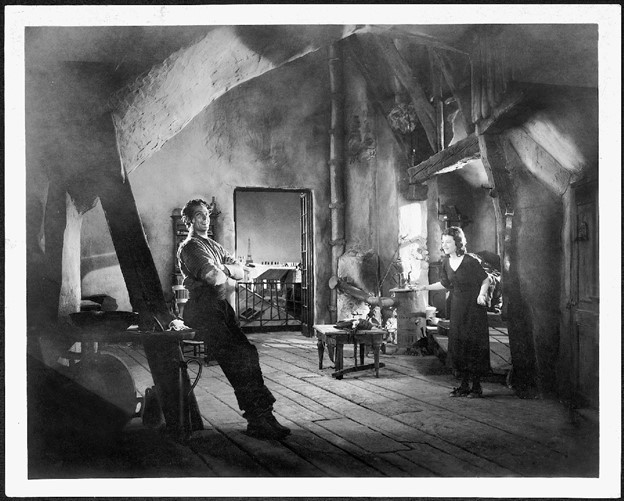Seventh Heaven (1927)
Frank Borzage's "Seventh Heaven"
On May 16, 1929, the very first Academy Awards were held in Los Angeles, California. There, the film "Wings" by William A. Wellman went home with the very first Best Picture award. However, Best Director, Best Actress, and Best Writing (Adapted Screenplay) all went to participants of the film "Seventh Heaven." The film is an adaptation of the stage play by the same name, with the script penned by Benjamin Glazer. Frank Borzage, a director who had been working in the Hollywood industry for almost 15 years, adapted Glazer's script to the screen. For the main star of the production, Janet Gaynor, an up-and-coming actress, was cast in the lead role. For her screen partner, Charles Farrell was cast. The collaboration of these filmmakers proved to be enormously successful, as both critics and commercial audiences raved about the film. Not only did it receive 3 Academy Award wins but was so successful that Janet Gaynor and Charles Farrell were screen partners 11 more times.
The film begins with the character Chico, who works in the sewers of Paris. He has dreams of making it out of the sewer to be a street sweeper. One day, a young prostitute named Diane is being harshly beaten by her sister Nana on the street. Chico saves her life and tells the police that she is his wife to avoid her being arrested as a prostitute. To ensure his story, the police tell him that they will be by his apartment to investigate whether he is telling the truth. So, Chico takes Diane to his apartment until the investigation is complete. The two end up falling in love regardless. After war breaks out, Chico is called to the front lines. Diane is told by officials that Chico was killed by enemy forces. She breaks down until the voice of Chico can be heard calling from down the stairs. He emerges into the apartment, now blind, and embraces his love.
The main thematic element of the film is that of hope. Despite working in the sewers, Chico hopes of a better future. He continuously says in the film that he always 'looks up.' Despite the notion that he is literally 'looking up' from the sewers, it also refers to looking up to God. There are plenty of religious elements in the film, including the presence of a priest who looks after the couple throughout. Chico and Diane both begin the film in low places, sewer worker and prostitute, respectively. As they continue to love and lift each other up, they are given new opportunities to rise above their standing. Chico is given a street sweeper job by the priest who overhears him disavowing God. Diane gets to live in Chico's upstairs apartment, which is like living in luxury comparative to her situation. When war breaks out, the two continue to hope, as both must separate. They never give up on believing that they will reunite again. Their hope finally pays off, perhaps not exactly as they expected. Even though Chico is now blind, this is a far better scenario than his death, which is what Diane was presented with at first. Despite the hardships faced by the two, their hope is what keeps them going as well as their renewed faith in God by the end.




Comments
Post a Comment